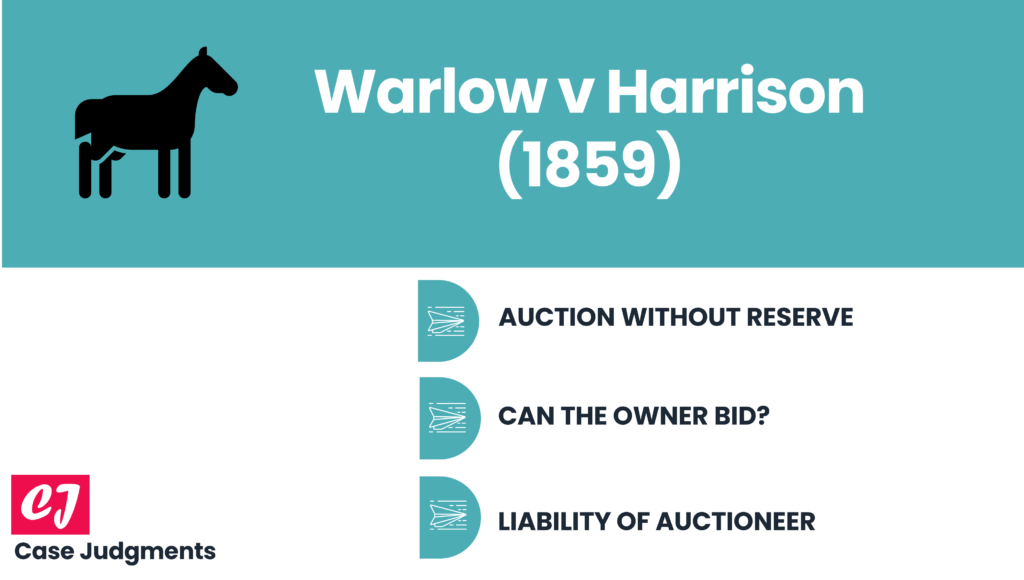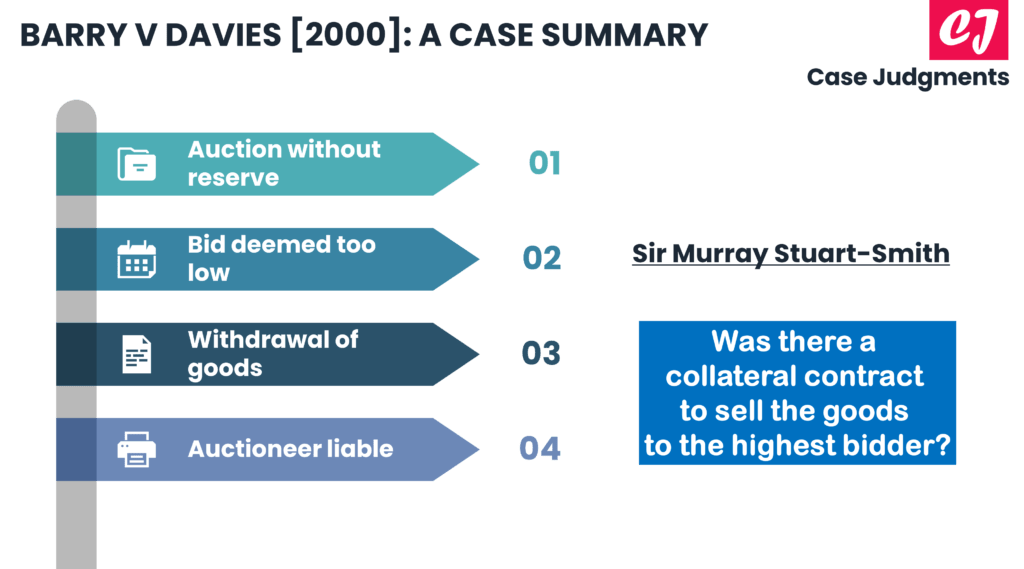
A Case Summary of Spencer v Harding (1870)
Case name & citation: Spencer v Harding (1870) LR 5 CP 561
- Year of the case: 1870
- Jurisdiction: The Court of Common Pleas
- The bench of judges: Willes, Keating and Montague Smith, JJ.
- Area of law: Offer and an invitation to treat
What is the case about?
Spencer v Harding is a legal case in which the Court addressed the issue of whether a request for tender is an offer to sell goods or an invitation to make an offer to purchase.
Facts of the case (Spencer v Harding)
In the given case, the defendants (Harding) put out a circular advertising the sale of stock in a particular company and inviting tenders for the purchase of the stock. The claimant, Mr. Spencer, submitted a tender in accordance with the requirements set out in the circular. His tender was the highest one received. However, the defendants refused to accept Mr. Spencer’s tender and sell him the stock. Mr. Spencer sued the defendants, alleging that they had breached their contract by refusing to sell him the stock.
Issue that arose
Was the circular an offer or an invitation to treat?
Court’s decision in “Spencer v Harding”
The decision was taken in favor of the defendants. The defendants were not bound to sell the stock to Mr. Spencer.
The Court held that a request for tender is not an offer to sell, but rather an invitation to make an offer to purchase. As such, the seller is not under any obligation to sell to the person making the highest tender and may choose to accept or reject any or all of the offers made in response to the request for tender at their discretion. This principle has been widely adopted in common law jurisdictions and is often cited as a key principle in the law of contract.
Legal principles behind the case
In general, auctions are considered to be a type of contract known as a “sale by auction.” In a sale by auction, the auctioneer invites potential buyers to make bids/tenders on the item being auctioned. The auctioneer is acting on behalf of the seller and has the authority to accept or reject any bids that are made.
The highest bid at an auction is not necessarily the winning bid and is merely an offer to buy. The auctioneer has the discretion to accept or reject any bids and may choose to reject the highest bid if it is not acceptable for some reason. For example, the auctioneer may reject the highest bid if it is below the reserve price (if there is one), if the bidder does not meet certain qualifications, or if there is some other issue with the bid.
It’s important to note that in a sale by auction, the bid itself is not considered to be an acceptance of the offer to sell. Instead, it is the acceptance of the bid by the auctioneer that constitutes acceptance of the offer.
Key Note:
If a request for tender includes language stating or implying that the seller will accept the highest tender, or if the seller’s conduct suggests that they are willing to be bound by the terms of the highest tender, then the request for tender may be considered an offer to sell. In such a case, the seller would be required to sell the goods or services to the person making the highest tender if that person accepts the offer.
Here in this case, since it wasn’t stated or implied that the defendants will undertake to sell to the highest bidder, the circular inviting tenders was merely an invitation to treat.
List of references:
- https://www.hzu.edu.in/uploads/2020/10/97-contract-law-willan-publishing-2007.pdf
- https://www.pbookshop.com/media/filetype/s/p/1405700635.pdf
- https://media.studylast.com/2021/08/Contract-LLB-Cardiff-University-notes-p.pdf
You might also like:
More from contract law:

